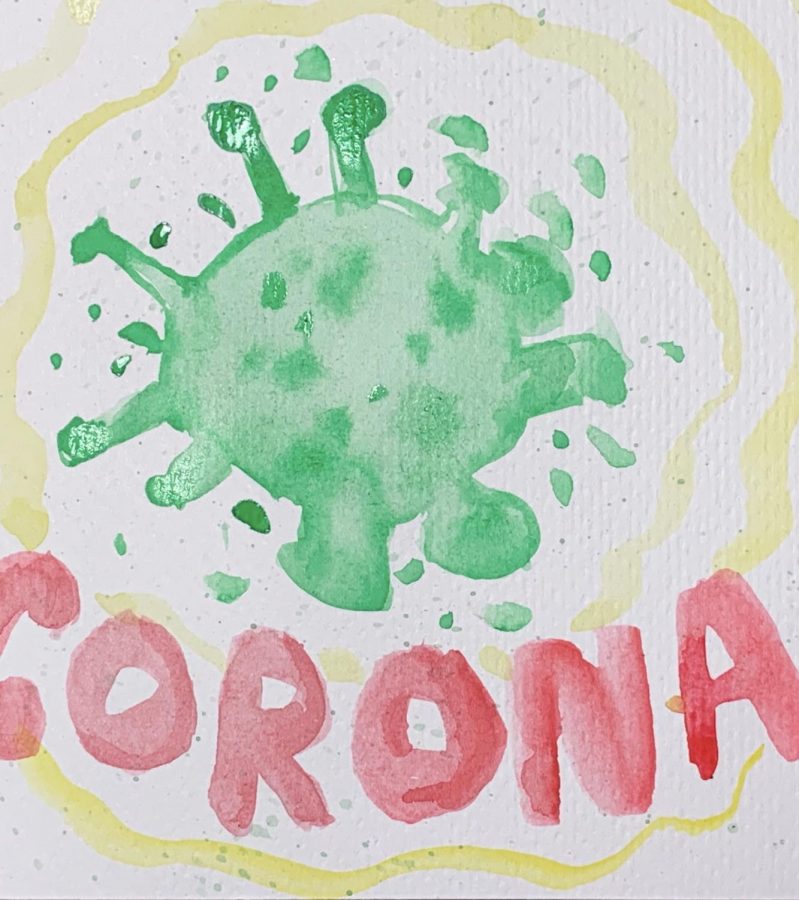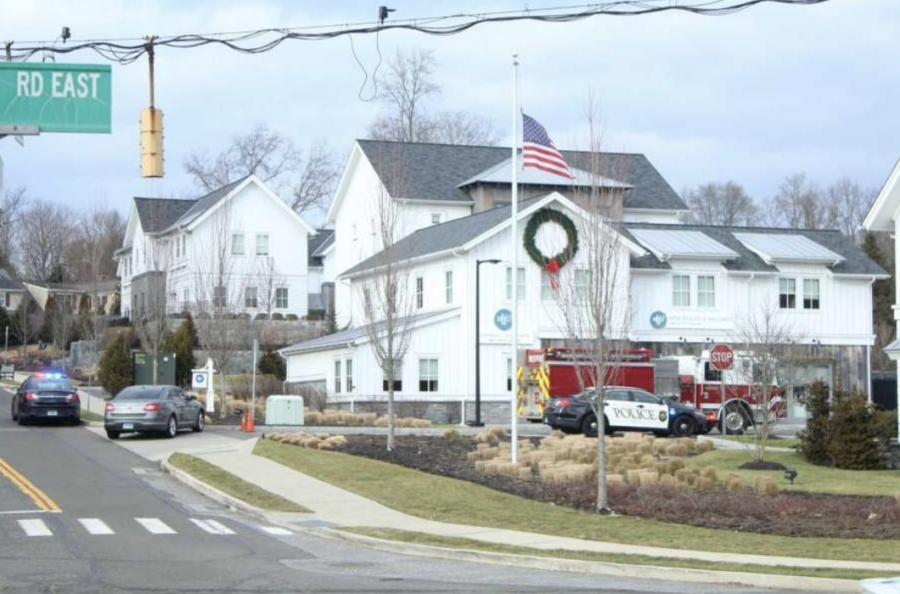“It’s hard not to think that the job was keeping him alive. He died from cancer, but it seemed like he died of a broken heart.”
This is how Justin Gallanty ’14 described the Jan. 22 death of legendary Penn State football coach Joe Paterno. In fact, the phrase “broken heart” appears to be a motif in reflections about his passing.
“I heard on ESPN that he died of a broken heart, and I think to some extent, he really did,” said Staples social studies teacher Eric Mongirdas, who graduated from Penn State in 1995. “He lived, breathed, and died football. I think it’s what kept him going.”
Although Paterno had a auspicious 61-year tenure as the Nittany Lions head coach (last Oct, he notched his 409th career victory, the most of anyone in major college football history), whether his success will transcend his life became a question last fall, when he became associated with a globally-discussed child sex abuse scandal. Paterno’s professional reputation, which, since the 1960s, had largely been that of an honest, honorable, record-setting coach, was tarnished by allegations that his long-time assistant coach, Jerry Sandusky, was a serial child molester.
It began in 2002, when Paterno received word that something “inappropriate” had transpired between Sandusky and a child in the Penn State showers; the following day, he reported what he knew to his superiors. Beyond that, Paterno allegedly had no direct involvement with the child sexual abuse at the university.
In spite of the scandal, some, like Courtney Garzone ’11, a current freshman at Penn State, argue that Paterno’s reputation should stand alone based on the successes he brought to the university.
“I believe that the media twisted this story into something much more than what it was before they had all of the facts,” Garzone said. “I don’t think these crimes should go unpunished, I don’t think that Paterno did everything right, but I do believe that he did enough right to not deserve to have his name tarnished and his title stripped the way they were.”
Paterno was also well regarded in the field of philanthropy, notably for his dedication to maintain academic success amongst his players. Since he began his position as head coach in 1966, Penn State football players have regularly demonstrated high academic achievement compared to those of other nationwide Division I-A schools. Additionally, Paterno has donated millions of dollars to support Penn State academics; in the 1990s, he collectively fund-raised and contributed over $35 million to create the acclaimed Paterno Library.
“He did a tremendous amount of good, both on the football field and through charitable donations,” Mongirdas said. “At the end of the day, his mantra was always ‘hard work.’”
According to former Staples students that currently attend Penn State, the community response on campus has been devastating on more than an emotional level.
“Word of his death was going around my dorm building. First, we heard that he was taken off of his respirator, and the next morning, we found out that he had passed,” said Sam Small ’11, a current freshman at Penn State. “I’m heartbroken.”
These students report that several classes at the university have been cancelled, memorial services have been held, and a video featuring Paterno has been played endlessly on the screens at Beaver Stadium. Garzone, who attended an on-campus vigil the night of Paterno’s passing, said that she was moved by what speakers and fellow students had to say about Paterno.
“These people spoke of how Joe wanted his players to grow into husbands, fathers, intellectual men. He wasn’t all about winning; he wanted to raise honorable men,” Garzone said.
Garzone added that despite the controversy that Paterno ultimately took to his grave, the Penn State community will forever cherish their beloved “JoePa.”
“We, as a student body, still love JoePa and praise him for the man he was. We are not blind to the events that have taken place this past semester. We believe that he did what he knew was right; he had the best intentions for his players and our school as a whole,” Garzone said. “We have been taught to live our lives by the same rule he did: success with honor.”
Mongirdas, who recalled Paterno’s Brooklyn brogue and “grandfatherly” physical gestures when he attended games as a college student, said that one inevitably cannot understand the impact Paterno had on Penn State unless one attends the university.
“As far as his passing to the Penn State community, it’s shattering,” he said. “He was simply a legendary figure.”
For current Staples students like David Raice ’15, Paterno’s death is mournful.
“It was a tragedy,” Raice said. “He was an inspiration to the college football world, and it’s sad that he’s going to be remembered for helping a guy like Sandusky rather than for all of his successes at Penn State.”
Max Kupperberg ’14, however, finds it difficult to look past the sex abuse scandal that changed Penn State forever.
“Everyone is saying all the stuff that happened tarnished his name, but he kind of allowed really awful things to happen,” Kupperberg said. “You have this great football coach, and a person who allows children to get raped.”
Like most national news, there is some sort of tieback to the Westport community. In this case, Staples physical education teacher and varsity football head coach Marce Petroccio has been coached by current University of Connecticut Huskies head coach Paul Pasqualoni, for whom Paterno was a coach as well. For Petroccio, the whole situation Paterno faced toward the end of his life was sad.
“In light of all that’s happened, it’s a sad situation, because there’s no winner,” Petroccio said. “It’s definitely the end of an era at Penn State. It’s like the last chapter of the book.”
Although Petroccio believes that Paterno should have gotten out of coaching earlier and enjoyed his life with his family prior to his death, he thinks, by some chance, the events unfolded the way they were meant to.
“I think maybe it’s better this way, that he didn’t have an opportunity to really face his accusers and detractors,” Petroccio said. “Now, it just ends, and Penn State can start the healing process there, which is going to take a long, long time.”
Interestingly, the high prevalence of social media outlets such as Facebook and Twitter amongst the Staples student body had an effect on the way students perceived the news. In fact, word of Paterno’s death broke out on newsfeeds and timelines the evening before Paterno had even died.
“It’s weird seeing all the stuff on Facebook about it,” Will Haskell ’14 said. “I saw a few statuses that said, ‘It’s too soon to make jokes? Maybe I should wait a decade like Paterno.’”
Despite how dramatic an effect the child sex abuse scandal may have had on one’s personal opinion of Paterno, at the end of the day, as Garzone notes, his coaching record and moral private life simply cannot go without admiration.
“He’s lived in the same modest house his whole life. He was a humble man who loved this school, and who loved each and every student, and he did everything he could to make our college careers the best they could be,” Garzone said. “I have only the utmost respect for Joe Paterno, and I regret that he passed on such rocky circumstances. I love him for what he provided to our school, and I hope that he is happy and watching over us today.”
And for JoePa, that’s what he wanted all along.
“They ask me what I’d like written about me when I’m gone,” reads the engraved bronze plaque near Paterno’s statue outside of Beaver Stadium at the university. “I hope they write that I made Penn State a better place, not just that I was a good football coach.”


















































